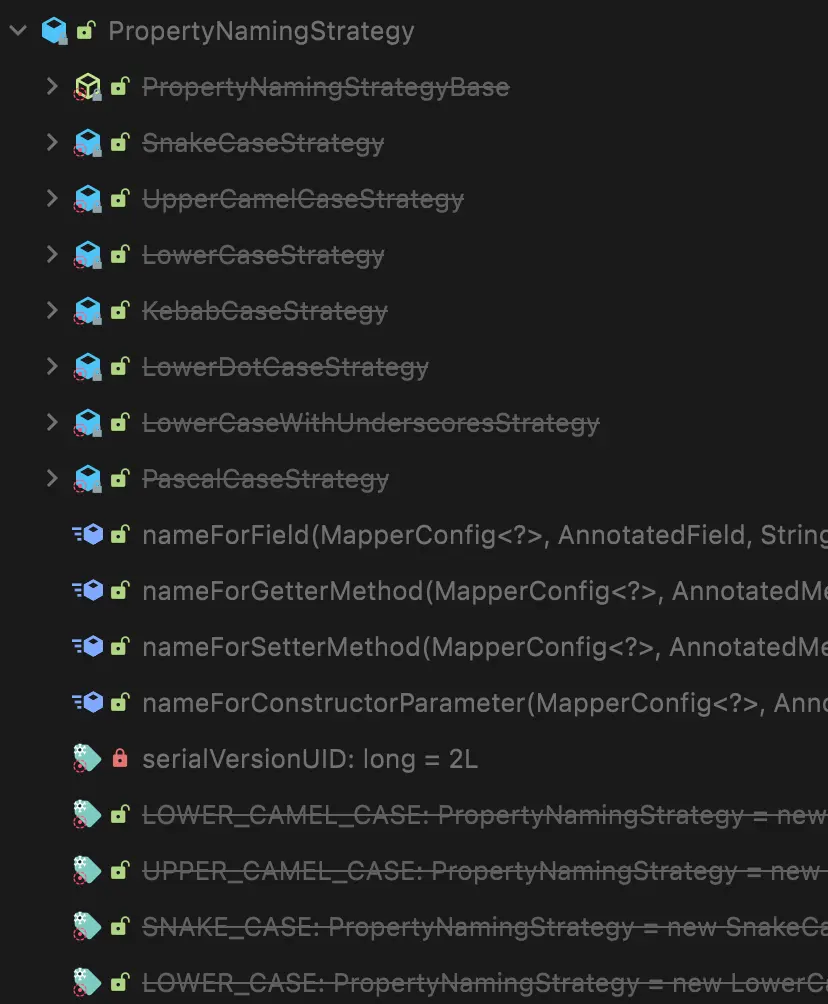How to Use @JsonNaming
Sometimes, the JSON naming conventions used in an API may differ from the naming strategy within your application.
{
"Title": "Frozen",
"Year": "2013",
"Type": "movie",
"Poster": "https://m.media-amazon.com/images/M/MV5BMTQ1MjQwMTE5OF5BMl5BanBnXkFtZTgwNjk3MTcyMDE@._V1_SX300.jpg",
"imdbID": "tt2294629"
}
private String title;
private String year;
private String imdbId;
private String type;
private String poster;
If the variable names do not match the JSON keys, the data will not be populated.
In such cases, you can use @JsonProperty(value) to map the data without changing the variable names in the project. However, if there are many fields with different naming strategies, using @JsonProperty(value) on each field can clutter the code with too many annotations.
This is where the @JsonNaming annotation comes in handy, allowing you to change the naming strategy of a class at once.
@JsonNaming
Before v2.12
You can elegantly solve this as follows:
@Data
@JsonNaming(value = PropertyNamingStrategy.UpperCamelCaseStrategy.class)
public class Movie {
private String title;
private String year;
@JsonProperty("imdbID") // Only where needed!
private String imdbId;
private String type;
private String poster;
}
 This method is deprecated and marked with a strikethrough.
This method is deprecated and marked with a strikethrough.
However, this method has been deprecated since Jackson 2.12, so let's explore the newer approach.
After v2.12
Starting from version 2.12, you should use PropertyNamingStrategies.
@JsonNaming(value = PropertyNamingStrategies.UpperCamelCaseStrategy.class)
While a detailed explanation of the internal implementation may be too lengthy and off-topic, it is recommended to take a look as it is quite interestingly implemented!
In brief, the updated internal implementation involves an abstract class called NamingBase, which inherits the original PropertyNamingStrategy, and then the naming strategy inherits from NamingBase. NamingBase is used as a kind of intermediate implementation class.
